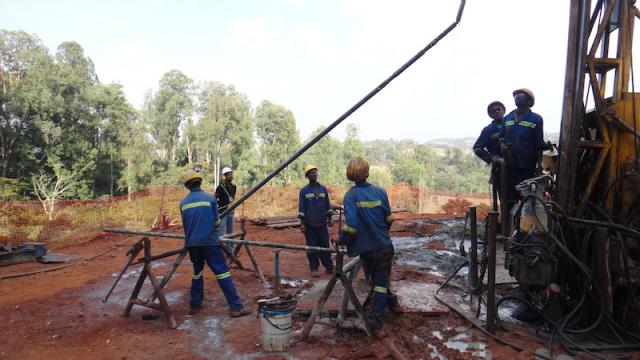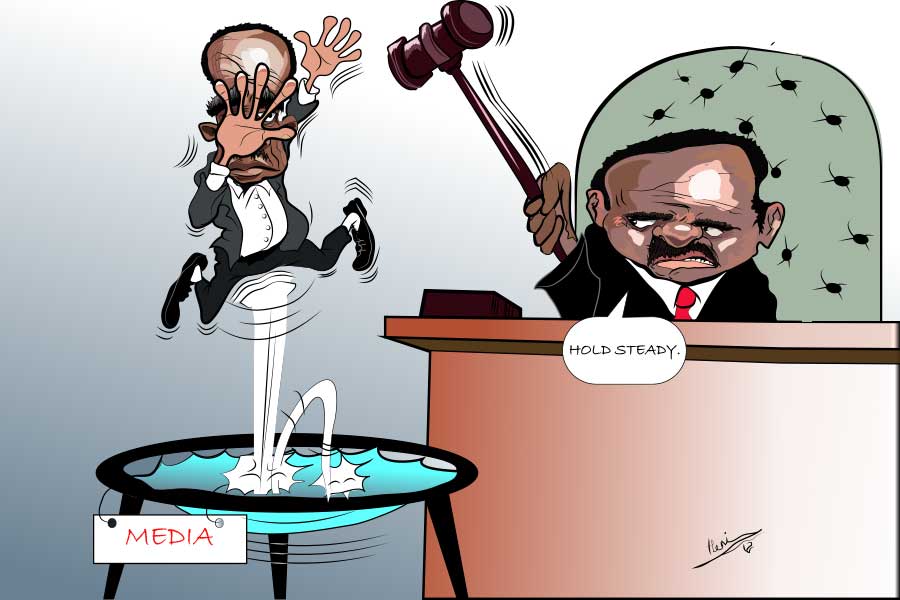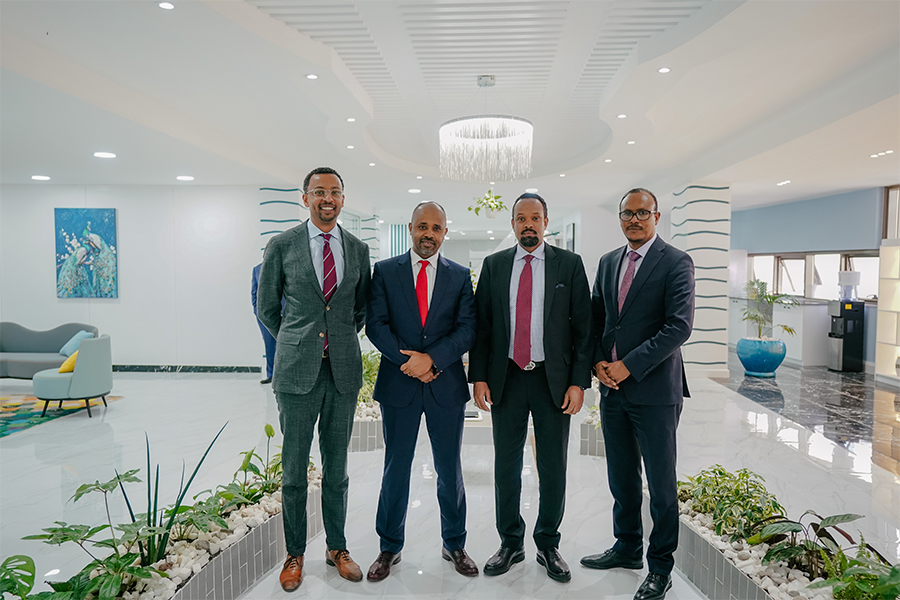
Fortune News | Jun 23,2019
Dec 10 , 2022.
The Ethiopian Human Rights Commission (EHRC), under the leadership of Daniel Bekele (PhD), issued a statement last week pronouncing what it described as "grave violations of human rights" unfolding in the Oromia Regional State. Ongoing militarised conflicts between various armed forces, mainly involving the federal army against an insurgency widespread in the region, reached beyond the alarming stage. It is ominous.
The gruesome scenes circulated through social media platforms, and the degree of cruelty applied in committing egregious acts against civilians, become too horrific even to contemplate. The recurrence of the violence in the region and several other areas has numbed senses. No less confounding should be the growing public apathy in the face of widespread tragedies.
Commissioner Daniel described the unabated violence as "related and reinforcing" bouts that have put the civilian population between a rock and a hard place. Armed groups unleashed in western, eastern and central Wellega and western, northern and eastern Shewa, as well as Arsi, Illu Ababora and Bedelle zones of the Oromia Regional State, are battling federal and regional forces making the areas a living hell to residents.
Of the 118 violent events the US-based Armed Conflict Location & Event Data Project (ACLED) documented in November this year, 95pc of them happened in Oromia, claiming the lives of 447 citizens.
The Commission placed responsibilities on all parties involved in the conflicts for committing massive human rights violations. Deservedly, Daniel and his deputy commissioners have called for investigations and urged the federal government to hold the perpetrators accountable while ensuring victims are protected and cared for.
The frightening unfoldings in the Oromia Regional State are all but a rare occurrence.
Over the past four years, Ethiopia has experienced a surge in violent conflicts alongside rapid economic liberalisation.
ACLED monitors political violence and protests worldwide, documenting one million incidents annually. Although reporting on 50 countries, it has dedicated "observatory" sections for Mozambique and Ethiopia. The Ethiopian Peace Observatory reported 3,676 organised violent events in the four years since 2018.
The surge in violence is mainly due to a rise in competing and militant nationalisms in the context of state fragility and its institutions.
A state is an imaginary construct contingent upon implied agreements binding governments and citizens in geographical locations and expressed through constitutions. The degree to which these implement the laws may outline the rights and duties of parties in the social contract. Equally, what is not pronounced in constitutions has a system of expectations and responsibilities that emerge within citizens. Due to adherence to these laws, the strength or fragility of states can then be measured against how the parties of the contract cooperate to maintain the health of the tentative and duty-bound relationship within a defined geography.
A country reaches a fragile state when governance is weakened, social tensions heightened and persist, federal and regional administrations grow limited in their capacity to rule, humanitarian crises implode, and it is exposed to armed conflicts and civil wars.
Ethiopia has not been faring well in this matrix. It ranked 11th in last year's report on the Fragile States Index out of 178 countries. It is a score for an intellectual concession most Ethiopians are unwilling to give. But, it would serve as a helpful signpost to reflect some parameters.
Including the bloody civil war in Tigray and adjoining regional states, the spell of militarised conflicts in Oromia, and the border feud between the Afar and Somali regional states do little to faze the citizenry, which has experienced moments of peace only as brief intervals in millennia of warfare. It should be incredible to witness that whatever has been left off the social contract is not leading to a complete social collapse but the fragility of the old Ethiopian state. The unabated suffering of civilians and the rampant atrocities that continued with impunity, coupled with the prevalent passivity, shows society's actual colour.
Ethiopia has been leading the world for consecutive years in the sheer number of its people displaced from their homes owing to violent conflicts, with some estimates currently putting the number at around three million. The civil war in the north, droughts in Borena and Somali, floods in Afar, and the communal clashes in Oromia regional state have raised the displaced number to alarming levels. While attribution of direct responsibility for these vast numbers should be left for independent and impartial investigations, their apparent existence indicates loosely woven threads holding the federation together.
With the growing state fragility, the economic downturn feeds into the bigger picture and is a source of grievances, facilitating mobilisations along identity faultlines. In most cases, they have ethnic overtones or involve ethnic groups. It appears that it is a factor that makes it easier for many to engage in violence, for they feel they have little to lose.
Although Ethiopia is not new to communal conflicts, the scale and intensity quickly escalated in the past couple of years bolsters the notion that the country's security could lead to a dangerous precipice. While the matrix refers to the state's susceptibility to attacks of differing magnitude, the imperceptibility of actors perpetrating acts of violence, especially in Oromia, would put the cautious mind on high alert.
Violent conflicts have infrequently devastated several communities, although the largest war in Tigray subsided. It is a positive development that can demonstrate the willingness and ability of political leaders representing warring factions to sit for talks, and sufferings on the ground reduced or stopped altogether. Human Rights Commissioner Daniel was on point last week for emphasising the need to pursue peaceful avenues for durable peace alongside holding perpetrators accountable and delivering justice to victims. These are state duties of a tall order, as failure is a dereliction of official responsibilities.
Nonetheless, durable peace can come through negotiated settlements, whether in Oromia Region or conflicts sprouting in other areas. The Pretoria Accord reached between the federal government and the TPLF, and the subsequent Nairobi Declaration reached between the military commanders of the warring parties, stays fresh in memory serving as an instructive moment. Conflicts due to political differences are better resolved through political engagements and negotiations.
PUBLISHED ON
Dec 10,2022 [ VOL
23 , NO
1180]

Fortune News | Jun 23,2019

Editorial | Jul 18,2020

News Analysis | May 04,2025

Fortune News | Dec 24,2022

Fortune News | Dec 26,2020

Commentaries | May 02,2020

Radar | Jul 30,2022

Editorial | Jul 18,2021

Fortune News | May 23,2021

Fortune News | Jul 09,2022

My Opinion | 131499 Views | Aug 14,2021

My Opinion | 127855 Views | Aug 21,2021

My Opinion | 125833 Views | Sep 10,2021

My Opinion | 123463 Views | Aug 07,2021

Dec 22 , 2024 . By TIZITA SHEWAFERAW
Charged with transforming colossal state-owned enterprises into modern and competitiv...

Aug 18 , 2024 . By AKSAH ITALO
Although predictable Yonas Zerihun's job in the ride-hailing service is not immune to...

Jul 28 , 2024 . By TIZITA SHEWAFERAW
Unhabitual, perhaps too many, Samuel Gebreyohannes, 38, used to occasionally enjoy a couple of beers at breakfast. However, he recently swit...

Jul 13 , 2024 . By AKSAH ITALO
Investors who rely on tractors, trucks, and field vehicles for commuting, transporting commodities, and f...

Jun 29 , 2025
Addis Abeba's first rains have coincided with a sweeping rise in private school tuition, prompting the city's education...

Jun 29 , 2025 . By BEZAWIT HULUAGER
Central Bank Governor Mamo Mihretu claimed a bold reconfiguration of monetary policy...

Jun 29 , 2025 . By BEZAWIT HULUAGER
The federal government is betting on a sweeping overhaul of the driver licensing regi...

Jun 29 , 2025 . By NAHOM AYELE
Gadaa Bank has listed 1.2 million shares on the Ethiopian Securities Exchange (ESX),...